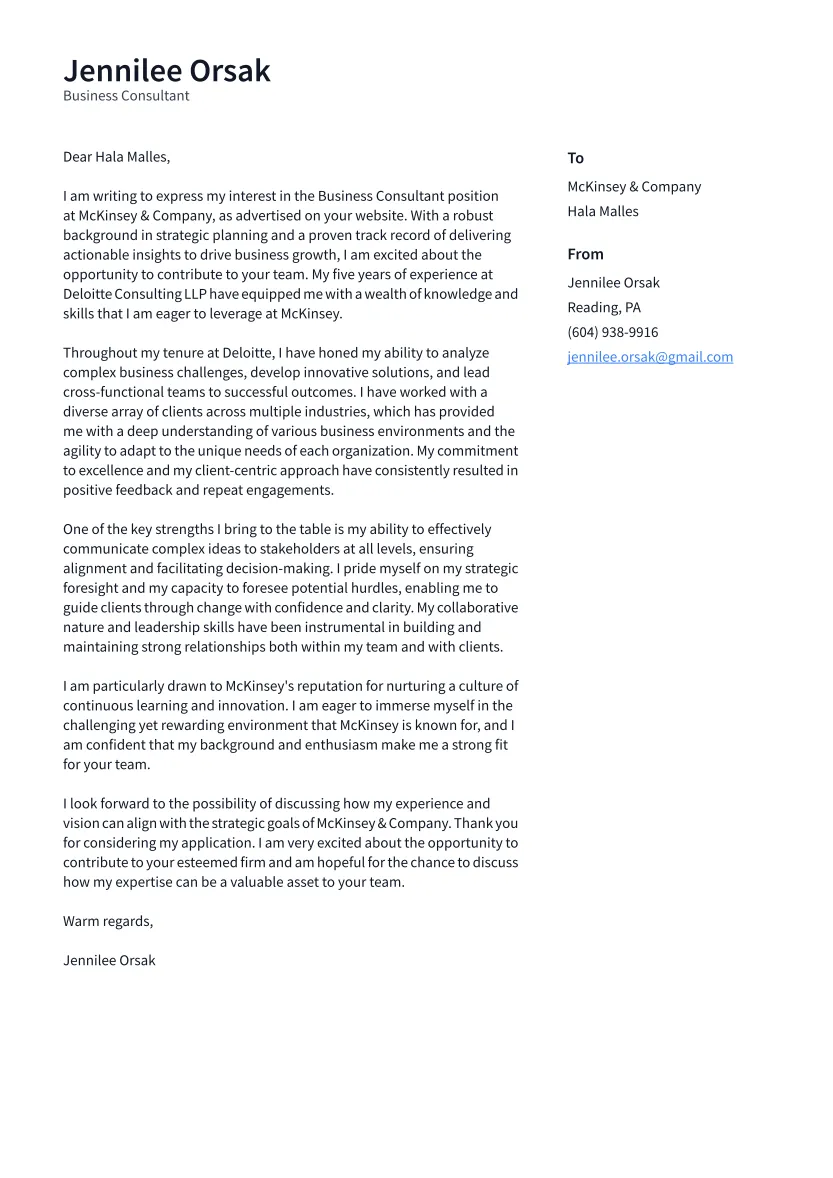Crafting Your Cover Letter as a Business Consultant
A well-crafted cover letter is your first opportunity to make a strong impression and secure an interview for your dream job as a business consultant. It’s more than just a formality; it’s a strategic tool to showcase your unique value proposition and demonstrate why you’re the ideal candidate. This article serves as a comprehensive guide, breaking down the essential elements of a winning cover letter that captures attention and highlights your expertise. We’ll delve into the nuances of crafting a compelling narrative, tailoring your message to specific job requirements, and avoiding common pitfalls that can derail your application. By mastering these techniques, you’ll significantly increase your chances of landing that coveted interview and taking the next step toward your career aspirations. Remember, a cover letter isn’t just about listing your qualifications; it’s about telling a story of how you can solve their problems and contribute to their success. Let’s get started.
Understanding the Role of a Business Consultant
Before you even begin to write your cover letter, it’s critical to understand the core responsibilities and expectations of a business consultant. This understanding informs the language you use, the skills you emphasize, and the overall tone of your letter. Business consultants are problem-solvers, advisors, and strategic thinkers. They analyze business operations, identify areas for improvement, and recommend solutions to help organizations achieve their goals. Their roles vary greatly, spanning industries and specializations, but common responsibilities include data analysis, process optimization, market research, and strategic planning. Highlighting your ability to address these challenges is paramount in your cover letter. Consider the specific type of consultancy you’re applying for, e.g., IT, financial, or management consulting, and tailor your letter accordingly. Demonstrate your knowledge of industry trends and challenges relevant to the potential employer. A strong cover letter demonstrates that you understand the organization’s needs and are positioned to deliver results.
Key Skills to Highlight in Your Cover Letter
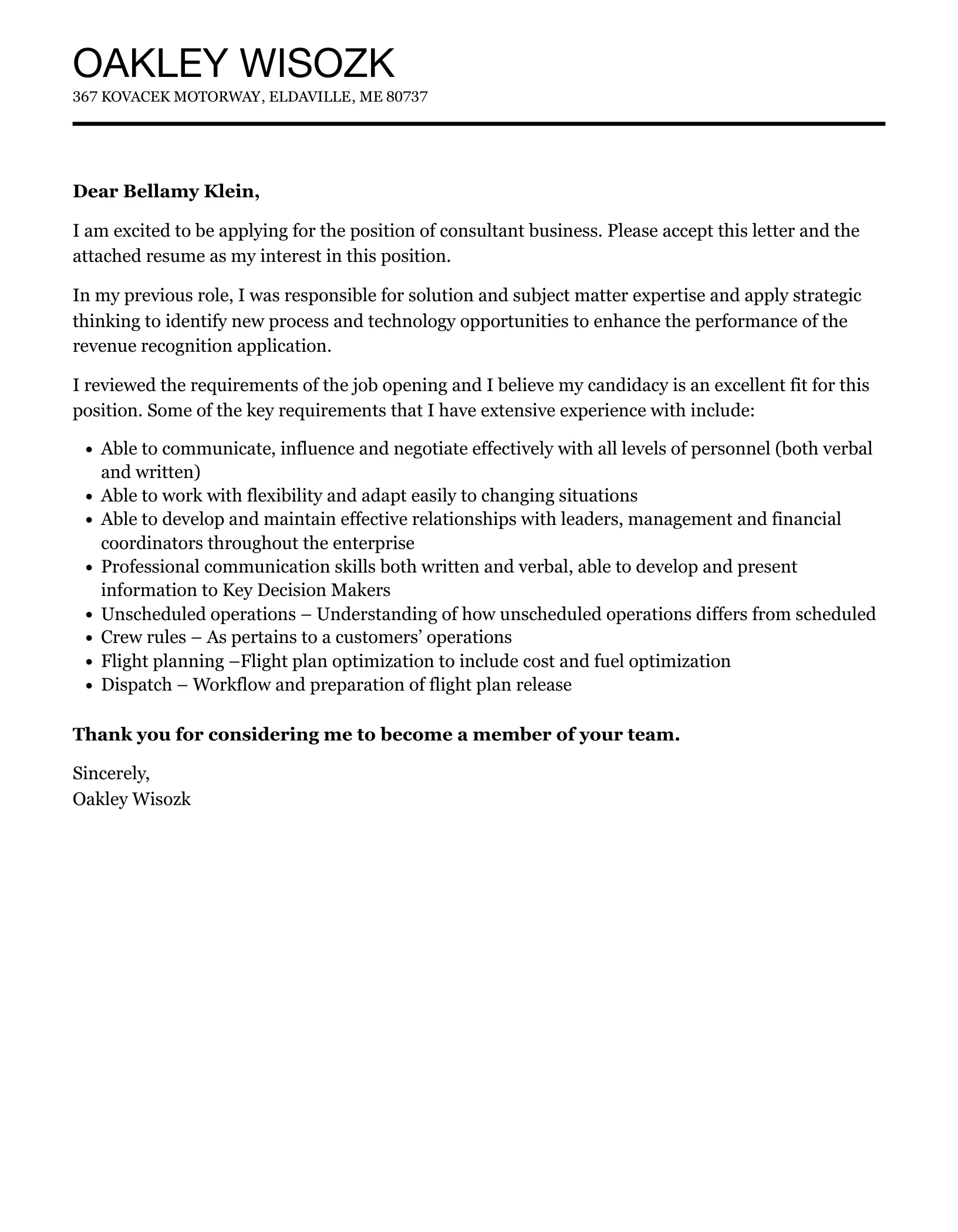
Business consulting demands a diverse skillset, and your cover letter should showcase your proficiency in these critical areas. Emphasizing the right skills ensures that you resonate with the hiring manager and clearly communicate your ability to excel in the role. Tailoring the listed skills to the specific job description is important; however, there are core skills that should be prominent. Include skills relating to problem-solving, communication, and project management. You will want to ensure to weave these skills throughout your letter, using specific examples to illustrate your abilities. Avoid simply listing skills; instead, demonstrate them through your past experiences and achievements. For instance, show your aptitude for data analysis by detailing your ability to create complex models or interpret significant datasets. By demonstrating a balance of hard and soft skills, you’ll increase your chances of catching the eye of the reader and securing an interview.
Analytical and Problem-Solving Skills
Business consultants are hired to solve complex problems, therefore, highlighting your analytical and problem-solving skills is crucial. Provide examples of how you have successfully analyzed data, identified root causes, and developed effective solutions. Mention specific methodologies you’re familiar with, such as SWOT analysis, root cause analysis, or other problem-solving frameworks. Quantify your achievements whenever possible. Instead of saying you ‘improved efficiency’, state that you ‘increased efficiency by 15%’. Showcase your ability to think critically, make informed decisions, and approach challenges systematically. Emphasize your ability to work with complex data, interpret results, and present your findings clearly and concisely. A strong demonstration of analytical capabilities instantly positions you as a valuable asset, a person who can dissect problems and drive meaningful change.
Communication and Interpersonal Skills
As a business consultant, you will spend much of your time communicating with clients, stakeholders, and team members. Therefore, communication and interpersonal skills are paramount. Showcase your ability to communicate complex information in a clear, concise, and persuasive manner, both verbally and in writing. Detail your experience presenting to audiences, writing reports, and facilitating meetings. Highlight your ability to build rapport, listen actively, and understand diverse perspectives. Illustrate your skills in negotiation, conflict resolution, and building consensus. Being able to adapt your communication style to different audiences is vital. Demonstrate your capacity to collaborate effectively within teams and build strong relationships with clients. Emphasize your ability to actively listen, ask probing questions, and build trust. Effective communication facilitates strong relationships, client satisfaction, and a better experience with consultants.
Leadership and Teamwork Abilities
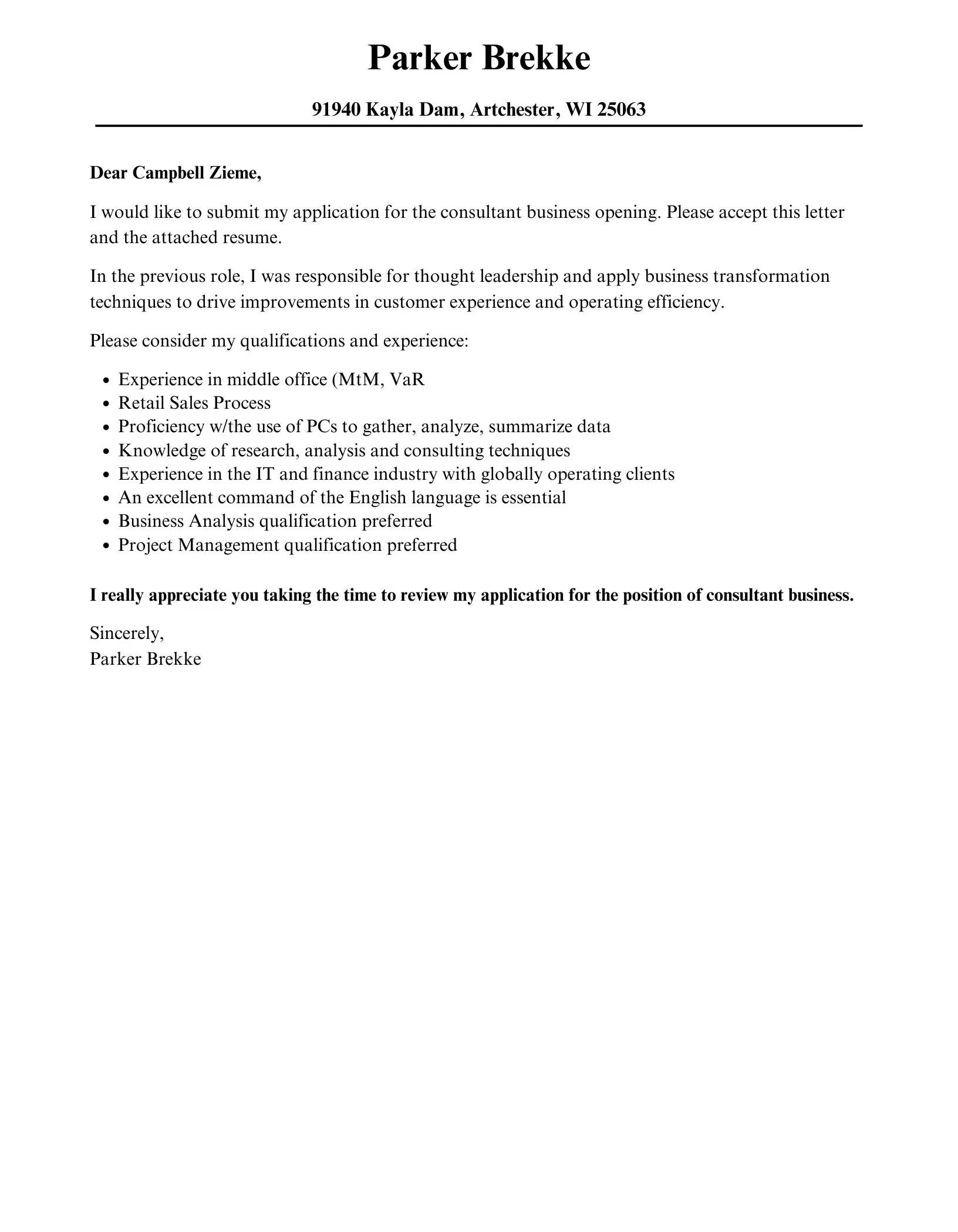
Business consultants often lead projects and manage teams. Leadership and teamwork skills are highly valued. Illustrate instances where you have successfully led teams, delegated tasks, and motivated others to achieve common goals. Describe your experience in project management, including planning, organizing, and executing projects on time and within budget. Provide examples of times when you have mentored or coached team members, fostering their professional growth. Showcase your ability to collaborate effectively, build consensus, and navigate conflict. Describe your experience working in cross-functional teams. Employers want consultants who can take initiative, inspire others, and drive results. Highlight your ability to take charge, motivate others, and work cohesively to deliver successful outcomes.
Tailoring Your Cover Letter to the Job
Generic cover letters are easily recognized and often discarded. To stand out, you must tailor your cover letter to each specific job application. Begin by thoroughly researching the company and the specific role you’re applying for. Understand the company’s mission, values, and recent projects. Examine the job description carefully and identify the key requirements, skills, and experiences they are seeking. Use the language from the job description in your cover letter, as this shows that you understand their needs and speak their language. Highlight how your skills and experience directly align with the job requirements. Avoid using a one-size-fits-all approach; instead, customize your letter to emphasize the experiences and skills that are most relevant to the position. Showing that you have invested time and effort in understanding the role, is a clear demonstration of your interest and suitability for the position.
Researching the Company and the Role
Thorough research is the foundation of a tailored cover letter. Begin by exploring the company’s website, social media profiles, and recent press releases. Look for information about their culture, values, and recent achievements. Understand the specific responsibilities and expectations of the role. Examine the job description in detail, noting the required skills, experience, and qualifications. Identify any specific projects or challenges the company is facing, so you can position yourself as someone who can help solve them. Understanding the company’s needs and challenges allows you to tailor your cover letter to showcase your value and demonstrate how your skills align with the specific requirements of the role. Use this information to create a cover letter that shows you are a good fit for the culture and requirements.
Highlighting Relevant Experience and Achievements
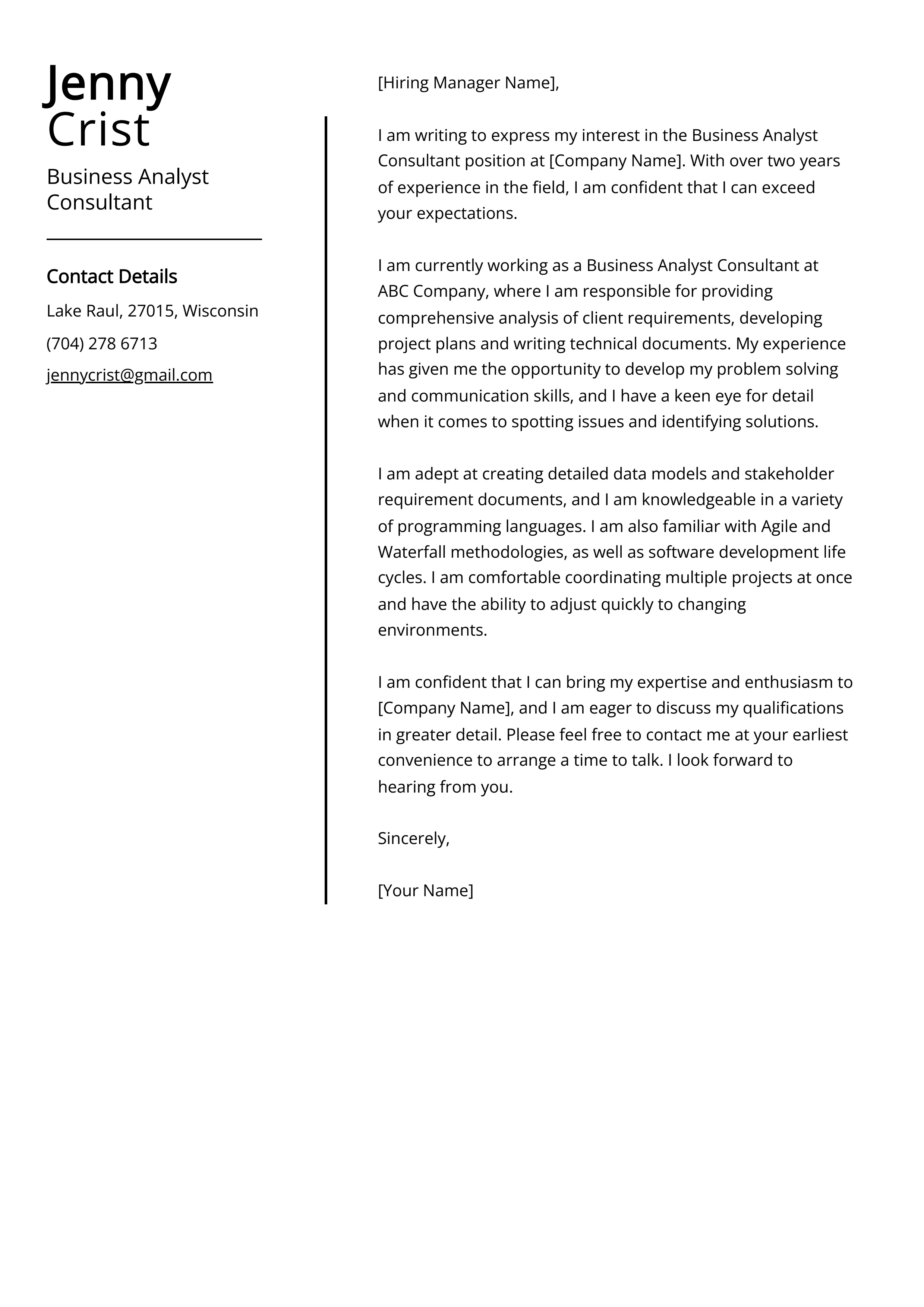
Your cover letter is your opportunity to showcase your most relevant experience and achievements. Focus on the experiences that directly relate to the job requirements and the company’s needs. Instead of simply listing your responsibilities, use the STAR method (Situation, Task, Action, Result) to provide specific examples of your accomplishments. Quantify your achievements whenever possible. Use numbers and data to demonstrate the impact of your work. Show, don’t just tell. Instead of saying you are ‘results-oriented’, share an example of how you ‘increased sales by 20%’. Tailor your examples to the specific requirements of the job. Choose the most compelling and relevant accomplishments that demonstrate your skills and expertise. By highlighting your tangible achievements, you provide concrete evidence of your ability to deliver results and make a positive impact.
Structuring Your Cover Letter for Maximum Impact
The structure of your cover letter is as important as its content. A well-structured letter is easy to read and clearly conveys your message. Use a professional and easy-to-read format, typically one page in length. A standard cover letter consists of an introduction, body paragraphs, and a conclusion. Maintain a clear and concise writing style, using strong verbs and avoiding jargon or overly complex sentences. Each section should serve a clear purpose and work together to create a cohesive narrative that demonstrates your value. By carefully structuring your letter, you can maximize its impact and ensure that your key messages are effectively communicated to the hiring manager. A well-organized letter demonstrates professionalism and a clear understanding of the role and your ability to fulfill it.
The Introduction Grabbing Their Attention
The introduction is your first chance to make a positive impression and grab the reader’s attention. Start with a compelling hook that highlights your enthusiasm for the position and the company. State the specific role you’re applying for and where you found the job posting. Briefly mention how your skills and experience align with the job requirements. Avoid generic opening lines, such as ‘I am writing to express my interest…’ Instead, make your introduction memorable and engaging. Tailor your introduction to the specific company and role. Demonstrate your understanding of the company’s values and mission. Show enthusiasm for the opportunity and your eagerness to contribute to their success. A strong introduction sets the tone for the rest of the letter, making the reader eager to learn more about your qualifications and what you can bring to the table.
The Body Showcasing Your Value
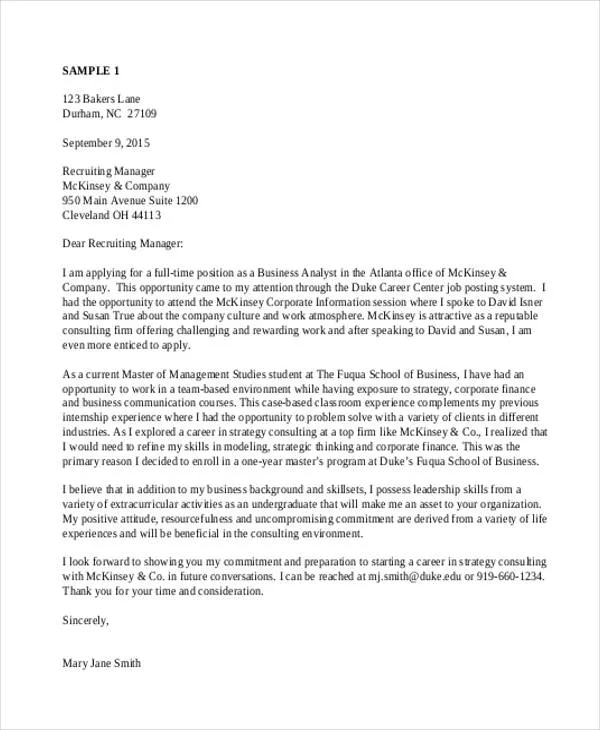
The body of your cover letter is where you demonstrate your skills, experience, and value proposition. Use several paragraphs to showcase your most relevant experiences and accomplishments. Provide specific examples that support your claims, using the STAR method to illustrate your abilities. Quantify your achievements whenever possible to demonstrate the impact of your work. Tailor your examples to align with the requirements of the job description. Focus on the most relevant skills and experiences and explain how they translate to success in the role. Explain how you can solve their problems and contribute to the company’s goals. Maintain a professional and concise writing style, using strong verbs and avoiding unnecessary jargon. The body of your cover letter should be a compelling narrative that clearly and effectively communicates your value and fit for the role.
The Conclusion Making a Strong Closing Statement
The conclusion is your final opportunity to make a lasting impression. Reiterate your interest in the position and the company. Briefly summarize your key qualifications and reiterate your enthusiasm for the opportunity. Thank the reader for their time and consideration. Include a call to action, such as stating that you look forward to hearing from them or that you are available for an interview at their earliest convenience. Proofread the entire letter carefully before submitting. End your cover letter on a positive and confident note. Avoid generic closing statements. Tailor your conclusion to the specific job and company, referencing something that caught your attention during your research. A strong conclusion reinforces your key messages and leaves the reader with a positive impression.
Formatting and Proofreading Your Cover Letter
The appearance of your cover letter is just as important as its content. Proper formatting and proofreading demonstrate your attention to detail and professionalism. Formatting errors or grammatical mistakes can create a negative impression and undermine your application. Make sure to choose a professional-looking font, such as Times New Roman or Arial, and use a consistent font size (usually 11 or 12 points). Use standard margins (1 inch on all sides) and single-spacing. Maintain a clear and organized layout with plenty of white space. Proofread your cover letter meticulously for any errors in grammar, spelling, and punctuation. Ensure your writing is clear, concise, and easy to read. Ask a friend or colleague to review your letter for a fresh perspective. By taking the time to format and proofread your cover letter, you will increase your chances of making a positive impression and landing an interview.
Formatting Tips for Professionalism
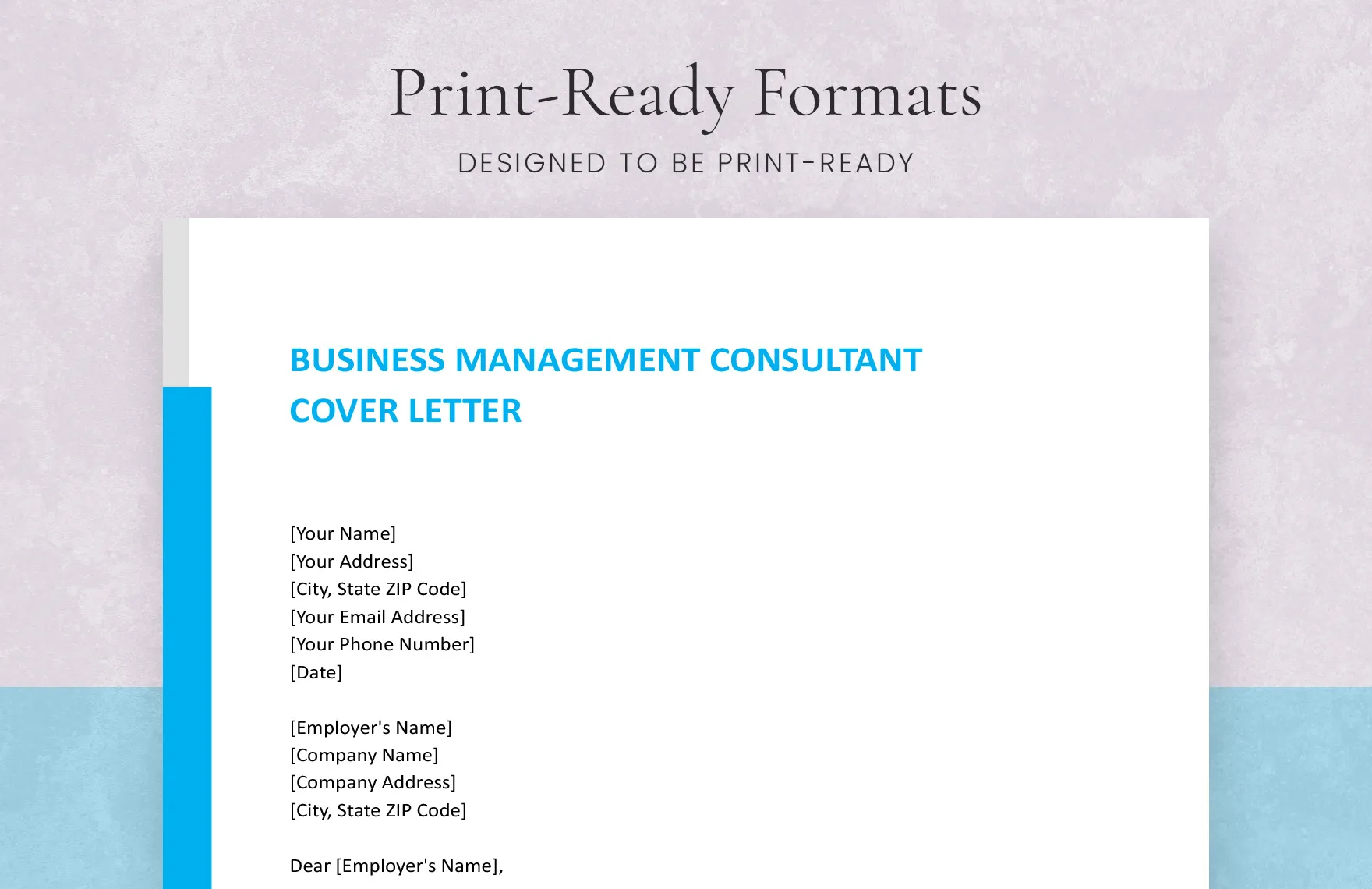
Professional formatting is crucial for making a good first impression. Choose a standard, easy-to-read font, such as Times New Roman or Arial, and use a font size between 11 and 12 points. Ensure consistent formatting throughout the document, including line spacing, margins, and headings. Use 1-inch margins on all sides of the page. Avoid excessive use of bolding, italics, or underlining. Keep your cover letter to one page in length. Include your contact information at the top of the letter. Use clear and concise language, and avoid jargon or overly complex sentences. Ensure that the layout is visually appealing and easy to read. Professional formatting demonstrates your attention to detail and commitment to presenting yourself in the best possible light. A well-formatted cover letter is easier to read and conveys a sense of professionalism.
Proofreading for Errors and Clarity
Proofreading is a critical step in the cover letter writing process. Carefully review your cover letter for any errors in grammar, spelling, punctuation, and syntax. Use a spell checker, but don’t rely on it entirely. Read the letter aloud to catch any awkward phrasing or run-on sentences. Check for consistency in verb tense, pronouns, and punctuation. Ask a friend, family member, or career advisor to review your letter for a fresh perspective. Ensure that your writing is clear, concise, and easy to understand. Proofread carefully for any instances of the wrong words being used or of any sentences being overly long. A well-proofread cover letter reflects your attention to detail and professionalism. By taking the time to proofread thoroughly, you can ensure that your cover letter is free of errors and presents you in the best possible light.
